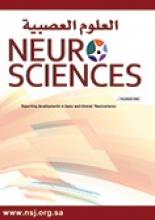Abstract
OBJECTIVE: To assess the effectiveness of fluoxetine in the treatment of post-traumatic stress disorder (PTSD) in adults.
METHODS: A meta-analysis was conducted between April 2008 and December 2010 at West China Hospital, Chengdu, China. Any randomized controlled trials (RCTs) in which fluoxetine were used for PTSD were considered through computerized databases up to September 2010 such as MEDLINE, EBSCO, EMBASE, and ELSEVIER. The RCTs were strictly assessed by investigators for inclusion in the study, collated trial data, and trial quality. The results of 7 RCTs included were combined in this meta-analysis to determine the effectiveness of fluoxetine on PTSD.
RESULTS: Significant findings from the randomized and placebo-controlled trials suggest that fluoxetine could be an effective medication for PTSD (Respond: relative risk=1.21, 95% confidence interval [CI]: 1.03-1.43; Davidson Trauma Scale total score: weighted mean differences=-7.73, 95% CI: -11.69-3.76). In addition, fluoxetine can cause fairly mild adverse effects for those PTSD patients.
CONCLUSION: Findings suggest that fluoxetine is an effective treatment for PTSD, with mild adverse effects on individuals.
- Copyright: © Neurosciences
Neurosciences is an Open Access journal and articles published are distributed under the terms of the Creative Commons Attribution-NonCommercial License (CC BY-NC). Readers may copy, distribute, and display the work for non-commercial purposes with the proper citation of the original work.






